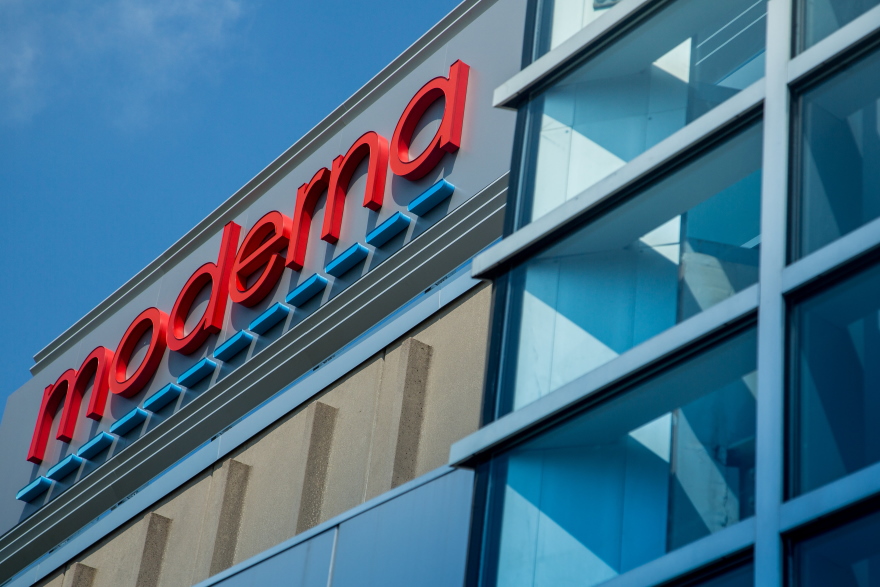Moderna squares off with US government over COVID jab patent

After being hailed as a triumph of public-private drug development, Moderna's partnership with the US government on its COVID-19 vaccine looks like it may descend into acrimony.
That is according to a New York Times report, which says Moderna is now in dispute with the National Institutes of Health (NIH) after it filed a US patent in the US that claims the company's scientists invented the vaccine on their own.
Not so, says the NIH, which argues that three of its scientists – John Mascola, Barney Graham and Kizzmekia Corbett – should be named as co-inventors of the messenger RNA sequence coding for the SARS-CoV-2 spike protein that is the main component of Moderna's mRNA-1273 shot. The patent has been filed but not yet awarded.
While it has only just become public, the NYT says that the dispute between Moderna and the NIH has been going on for months. The company filed a patent application in July which said it had "reached the good-faith determination" that the NIH researchers were not co-inventors – something that reportedly took the NIH by surprise.
The report also suggests that Moderna received almost $10 billion in taxpayer funding to develop the vaccine, take it through clinical testing it and supply doses to the US federal government.
Consumer pressure group Public Citizen has also drawn attention to the issue, writing a letter to NIH director Francis Collins earlier this month that urged the government agency to reclaim its "foundational role" in the vaccine.
"Last year, we documented how nearly all the leading coronavirus vaccines use the NIH stabilised spike protein technology, starting with mRNA-1273," says Peter Maybarduk, director of Public Citizen's access to medicines programme.
"However, it was clear that Moderna uniquely benefited from federal support," he adds, citing comments from former NIH official – Barney Graham – who said the NIH scientists designed the spike protein sequence and ran clinical trials of the shot.
The letter claims that Moderna says it finalised the sequence in collaboration with the NIH, but that it had a separate team working in parallel with the agency that independently arrived at the exact same sequence as the NIH team.
"Designating two independent teams to solve the same problem would mark an unusual style of scientific collaboration in a pandemic, and seems to go against the public statements of federal scientists," writes Maybarduk.
The US Patent and Trademark Office could take weeks or months to made a decision on whether to approve the patent, and if it does so that could prompt a legal challenge.
At stake could be how widely the vaccine can be made available – if the US government is a co-inventor, it will have more leverage to insist that steps are taken that would make the shot available to lower income countries.
Moderna has come in for criticism for supplying its vaccine mainly to affluent countries and not making the intellectual property for the vaccine available to other producers who could make it more cheaply.
The patent spat comes at a tricky period for Moderna, which cut its full-year sales forecast for the vaccine and missed revenue and earnings expectations in the third quarter.
France and Germany meanwhile have said the jab should not be used in people under 30 because cases of heart inflammation seem to be more common with it than Pfizer and BioNTech's rival shot.













